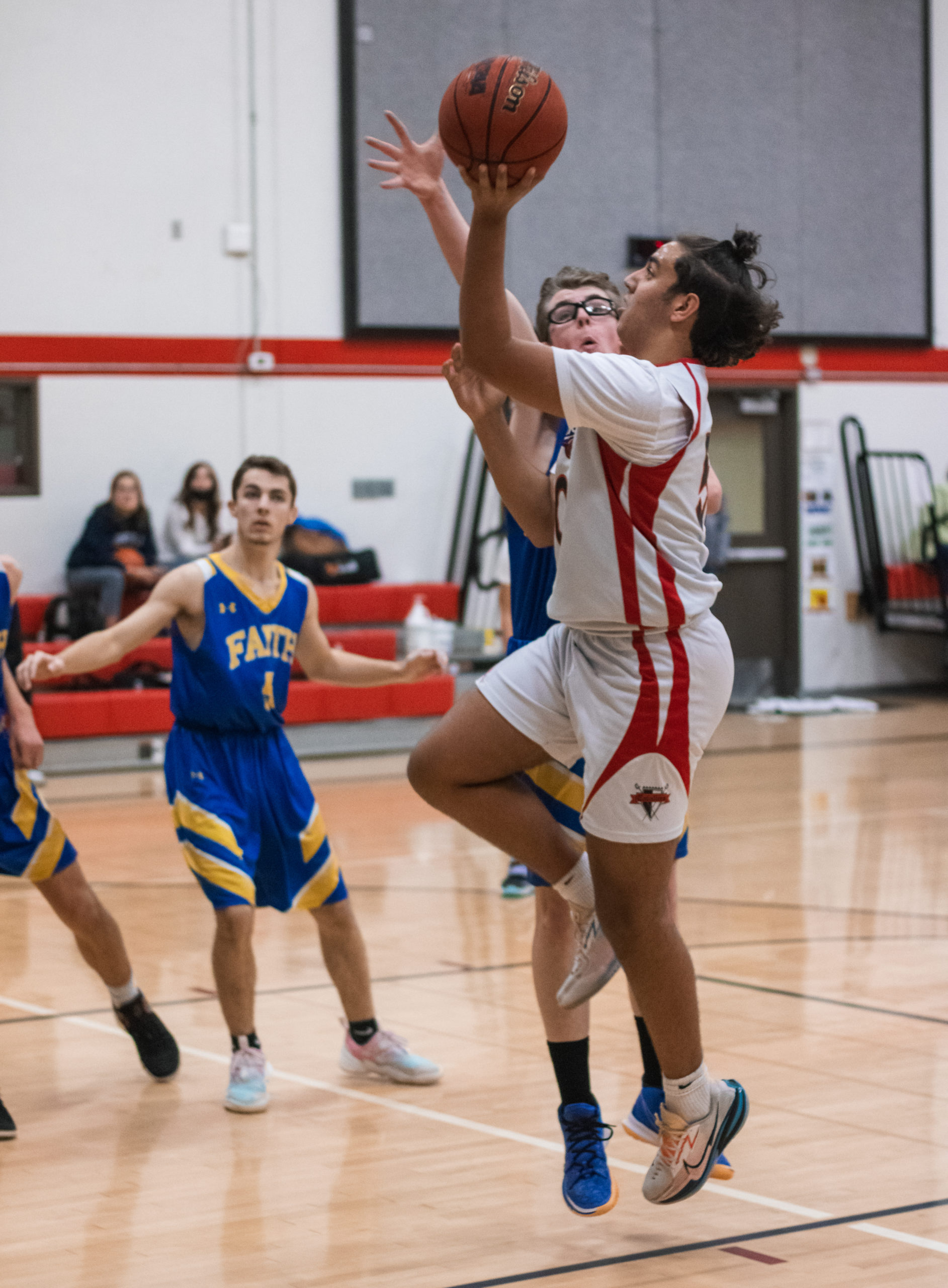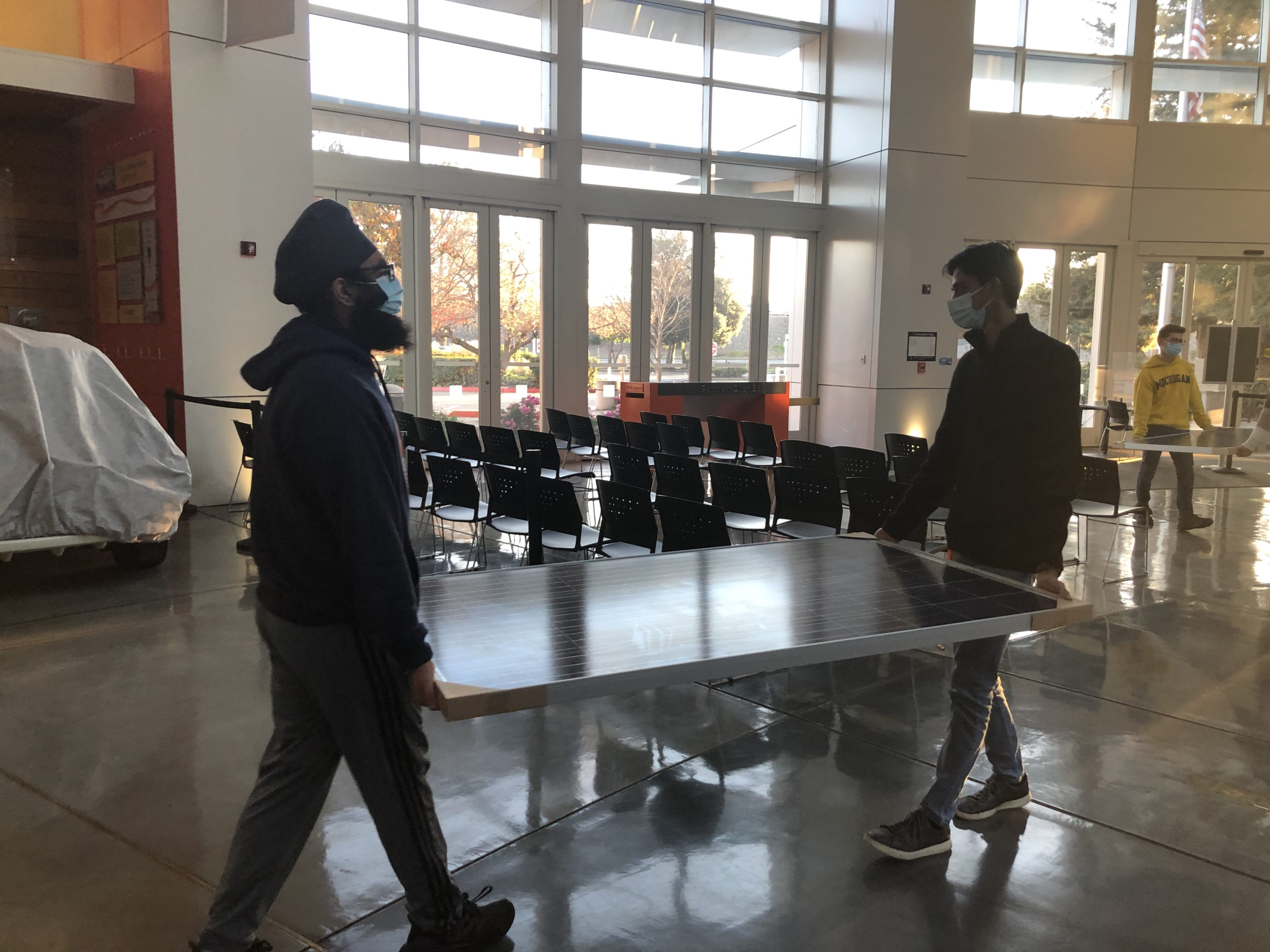Finding a school that is the right fit for students is the job of Country Day’s college counselors. Director of College Counseling Jane Bauman and Associate Director of College Counseling Chris Kuipers have been counselors at Country Day for the last nine and seven years, respectively.
Before teaching at Country Day, Bauman worked in international undergraduate admissions at the University of Nevada, Las Vegas. Kuipers was an admissions officer at Amherst College for four years and at Stanford University for one year.
“My experience helps me understand the process of how institutions approach applications,” Kuipers said.
The college counseling process formally begins in January of junior year with weekly, lunch-time college counseling meetings, known as C-day meetings.
In late January or early February, a parent meeting is held to introduce junior parents to the college counseling and admissions process.
Then, during springtime, students meet with their lead counselor individually for an introductory meeting to discuss long-term goals.
A student’s lead counselor is chosen based on many factors.
“I have more advisees because my teaching load is smaller,” Bauman said.
“We try to find a balance of students applying early and regular decision; we take the English and history recommendations into consideration, and we look to see who knows who better.”
Over the summer, students fill out self-evaluation forms which encourage them to reflect on themselves, explore their interests and help the college counselors write their letters of recommendation that are sent to colleges with the applications.
In addition to writing recommendations, Bauman and Kuipers help seniors narrow down college lists, review applications and look over essays.
Although Head of School Lee Thomsen announced that Country Day would suspend in-person learning on March 13, Bauman emphasized the counseling process has not changed much, describing it as “wonderful” because the intimacy still remains.
“I can directly connect with the student; we can look at their document, and we can share their document. And the fact that I taught every junior last year really makes a difference,” Bauman said.
Senior moratorium, a time during PSAT day when seniors work on their applications, was no longer possible under the new schedule, but it was “hardly a loss” because the same work was achieved in other ways, Bauman said.
Senior Layla MoheyEldin said it has taken extra initiative to reach out to the counselors because school has been online and she can’t simply walk up to them.
“They are both extremely busy but still manage to help me a lot,” she said.
Except for the test-optional and the test-blind admissions policies, the main differences in the application this year are that some submission deadlines are being pushed back and a few schools removed their early action policy, Kuipers said.
It is a trend for most students to apply early somewhere, but Kuipers said he noticed that the majority of seniors this year are applying early action instead of early decision. Unlike early action, early decision is binding; if you are accepted, you must attend that school.
“There is this uncertainty from COVID-19, specifically about what the campus is going to be like and financial uncertainties, something which I think will be a broader trend moving forward,” Kuipers said.
In addition, there is now an option in most applications that allows students to describe how COVID-19 has impacted them, Bauman said.
Due to COVID-19, students were not able to tour colleges, so colleges enhanced their virtual tours and information sessions. Visits with college representatives have all been online — although there haven’t been many because of the new college environment — and colleges are sending more emails, Bauman added.
“Small private colleges are really worried about student enrollments because of COVID-19,” Bauman said.
Senior Meghan Kaschner, who is only applying to one school early because of its restrictive early action policy, said she would have applied early to more schools without the pandemic. Kaschner plans to major in marine science or biology.
“A lot of things have been streamlined because of COVID-19. I’ve had to rethink the location of colleges I’m applying to,” Kaschner said.
Alumni interviews, which are more available now, and colleges’ social networks have helped Kaschner decide which school she’ll be happy to attend. She has done four interviews, two of which were formal.
“I did an interview with alumni from Wellesley College who was able to give me insight about the school and recommended that I talk to others from more recent graduating classes that pursued the same major I’m interested in,” Kaschner said.
“My college counselor has been very supportive and helps me narrow down what colleges I would like to attend versus what others are pressuring me to do.”
Kaschner and MoheyEldin chose to focus on schools closer to home from fear of the pandemic.
MoheyEldin applied early action to more schools because she had extra time in quarantine and used personal connections to better know schools.
“I looked at medium-sized private universities, mostly in California, with diversity population-wise and religion-wise,” she said.
“I also liked schools who accepted their flaws and showed that they were currently fixing them or willing to fix them.”
Early action, early decision and restrictive early action results are usually announced sometime in December, depending on the school.
Kaschner and MoheyEldin are happy about the test-optional and test-blind policies that schools adopted this year because they could focus on their applications rather than worrying about studying for standardized tests.
For the two international seniors who don’t live in the U.S., the process is more complicated.
Because they are international, those students can’t take standardized tests or meet as often with their counselors.
Senior Stephanie Ye works with her college counselor, Bauman, once a month as opposed to once a week. This hasn’t affected her much, though, because she is still finishing her applications.
“Since I went back to China in May, the SAT test centers were canceled — this affected me the most,” Ye said.
“Although I know some colleges have gone test-optional, I still feel like it hurts my application if I don’t take the test.”
Due to the tension between the U.S. and China, Ye plans to apply internationally as well.
“I should worry about how I finish my college applications instead of worrying about things I couldn’t control, but I plan to apply to some colleges in the U.K. because I feel like a lot of people are doing it this year,” she said.
The only challenge was electronic — because Google is restricted in China, a virtual private network is required to access it.
Kuipers said that there is no ideal applicant for any school, and seniors just need to present themselves.
“The goal for the application is for colleges to understand who you are, what your interests are, what your talents are and then choose a school that will develop the best version of yourself,” he said.
—By Sanjana Anand
Originally published in the Nov. 17 edition of the Octagon.




